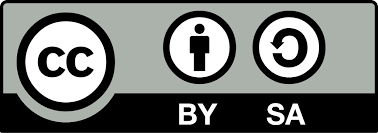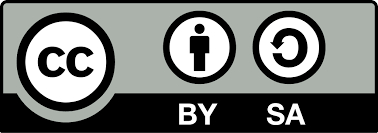JOURNAL TEMPLATE
Jurnal Sosiologi (JSOS) is serves as a scientific communication medium for studies in Social Sciences, Political Sciences, and Cultural Studies. It is officialy registered with e-ISSN 2776-0758 and ISSN 2239-2274. The journal is published biannually, in March and October, and circulated as an academic publication.
The primary objective of this journal is to facilitate academic discourse among scholars and students on sociologically relevant issues, functioning as a medium for the dissemination of scientific knowledge. It publishes works related to the development of concepts and theoretical studies, scholarly articles, research findings, book reviews, and discussions of current issues pertinent to the fields of Sociology, Politics, and Cultural Studies.
Topics covered include, but are not limited to, social criticism in the relationship between society and corporations, culture and indigenous communities, conflict and integration, pluralism in society, multicultural politics, gender and feminism, and environmental issues.
JSOS offers open access to ensure that the information and findings presented in its articles can benefit a broad audience. All journal articles are freely available for reading and download without any cost (Free of Charge). However, if any data or content from these articles are used as references or supporting material in other works, proper citation and acknowledgment of the original author must be provided.
Jurnal Sosiologi is an open access, peer-reviewed journal. The purpose of Jurnal Sosiologi is to publish original research articles and reviews that enrich theoretical understanding, as well as to promote and report empirical research on various sociological topics, including the environment, climate change and food security, gender, social inclusion, social change, digital society and culture, democracy, conflict, social movements, sustainable development, and urban and rural communities. The journal encourages and welcomes submissions of articles reporting findings using quantitative and qualitative research methods; articles that challenge conventional concepts and propose new conceptual approaches; and reports on methodological innovations and research processes.

Key points in the Peer Review Process:
When a manuscript is submitted to a journal, it is evaluated to see if it meets the criteria for submission. If so, the editorial team will select potential peer reviewers in the field of research to review the manuscript and make recommendations. There are four types of peer review used by SMARTSPORT:
The peer-review process is as follows:
1. Manuscript Submission
2. Evaluation by the Editorial Board
3. Peer Review Invitation
4. Response to Invitation
5. Review Conducted
6. Editor Evaluates Review Results
7. Decision
8. Next Steps
If accepted, the manuscript is sent to production. If the manuscript is rejected or sent back to the author for revision, the Section Editor will include constructive comments from the reviewers to help the author improve the article. The author must correct and revise the manuscript according to the reviewer's comments and instructions.
If the editor approves the revised manuscript, the manuscript is considered accepted. Accepted manuscripts will be published online and are available as free downloadable PDF files (open access).
The scientific publication code of ethics statement is a code of ethics statement for all parties involved in the scientific journal publication process, including: Managers, Editors, Peer Reviewers, and Authors. This statement of scientific publication ethics refers to LIPI Head Regulation Number 5 of 2014 concerning the Code of Ethics for Scientific Publication, which essentially upholds three ethical values in publication, namely:
This scientific publication code of ethics guide is translated and adopted based on Elsevier's publication ethics policy, which covers:
Ethical Standards for Editor in Chief:
Ethical Standards for Editors:
Ethical Standards for Reviewers:
Ethical Standards for Authors:
Ethical Standards for Website Administrators:
Website Administrators are responsible for managing journal websites. Specifically, the scope of duties of Website Administrators is as follows:
Every article submitted to "Jurnal Sosiologi" will not have any 'Article Processing Charges'. This includes submitting, peer-reviewing, editing, publishing, maintaining and archiving, and allows immediate access to the full text versions of the articles.
Jurnal Sosiologi (eISSN 2776-0758) has been indexed at:
The Journal of Sociology (eISSN 2776-0758) recommends tools such as:
Editor in Chief: Dr. Joni Rusmanto, M.Si., Universitas Palangka Raya, Indonesia
Editorial Office:
 <div style="display: none;">
<div style="display: none;">
<p><a style="visibility: hidden;" href="https://stockity.fun/">stockity</a></p>
</div>https://tbi.ftk.uinjambi.ac.id/idn/index.php https://jikesi.fk.unand.ac.id/web/https://elearning.pranataindonesia.ac.id/repository/
This work is licensed under a Creative Commons Attribution-ShareAlike 4.0 International License.
Jurnal Sosiologi: Published by Jurusan Sosiologi Fakultas Ilmu Sosial dan Ilmu Politik Universitas Palangka Raya, Indonesia | Addres: Kampus UPR Tanjung Nyaho Jalan Yos Sudarso Palangka Raya, (73111A) Central Kalimantan, Indonesia | Phone : +6289665141720 | Website: https://sosiologi.upr.ac.id/ | Email: editor.jurnalsosiologi@fisip.upr.ac.id
